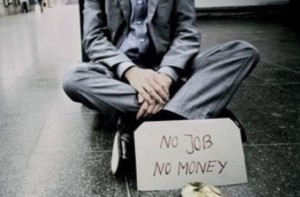Unemployment in UK fell to 6%
The unemployment in UK fell by more than expected in August to its lowest level since the financial crisis now. However, the British still do not feel the economic recovery through revenues. Between June and August the unemployment rate dropped to 6% versus a rate of 6.4% registered in the previous three months to May. […]

 The unemployment in UK fell by more than expected in August to its lowest level since the financial crisis now. However, the British still do not feel the economic recovery through revenues. Between June and August the unemployment rate dropped to 6% versus a rate of 6.4% registered in the previous three months to May. This happens after another 154 thousand. The British citizens managed to entering the labor force, according to the latest data of the National Statistical Service of UK ONS. The figures were above economists’ expectations for a decline in unemployment to 6.1%.
The unemployment in UK fell by more than expected in August to its lowest level since the financial crisis now. However, the British still do not feel the economic recovery through revenues. Between June and August the unemployment rate dropped to 6% versus a rate of 6.4% registered in the previous three months to May. This happens after another 154 thousand. The British citizens managed to entering the labor force, according to the latest data of the National Statistical Service of UK ONS. The figures were above economists’ expectations for a decline in unemployment to 6.1%.
The number of unemployed totaled 1.97 million people. For the first time the number falls below 2 million people. The last time this had happened also in 2008. Since the beginning of the year the number of unemployed decreased by 538 thousand – the largest annual decline recorded since data collection.
In turn, the employment is now 73%, as its level is close to the historic high of 73.2%, according to more data ONS. Total number of employed amounted to 30.76 million people. On the other hand, the number of unemployed young people aged 16 to 24 fell by 88 thousand. During the period to 733 thousand. Thus reducing youth unemployment to 16%.
“Record data show that long-term economic plan of the government to support businesses in creating jobs and return people back to work is proving to be successful”, said Minister of Labour and Social Policy of Britain Esther McVey. Although each month of the year unemployment yoy, the salaries of the British still do not grow. They even lower if we take into account rising prices. Average weekly working pay only grows by 0.7% in the three months to August, despite of the decreasing prices for office rentals in London. Meanwhile in the same period the inflation rate is almost double.
Excluding bonuses, average weekly wage turns slightly above market expectations. Falling wages means breath for the Bank of England, or in other words – central bankers will not rush with the release of the base rate, now at a record low 0.5%. Moreover, inflation consistently below the target of a financial institution. In September it was 1.2% at an annual inflation target of 2%. Due to these factors, analysts now expect the BoE will raise interest rates as early as mid-2015 instead of in the spring. Exchange rate of the pound to the USD remained static since the publication of data on the labor market. The GBP/USD pair continues to hover around 11-month low reaching 1.5917 USD.









